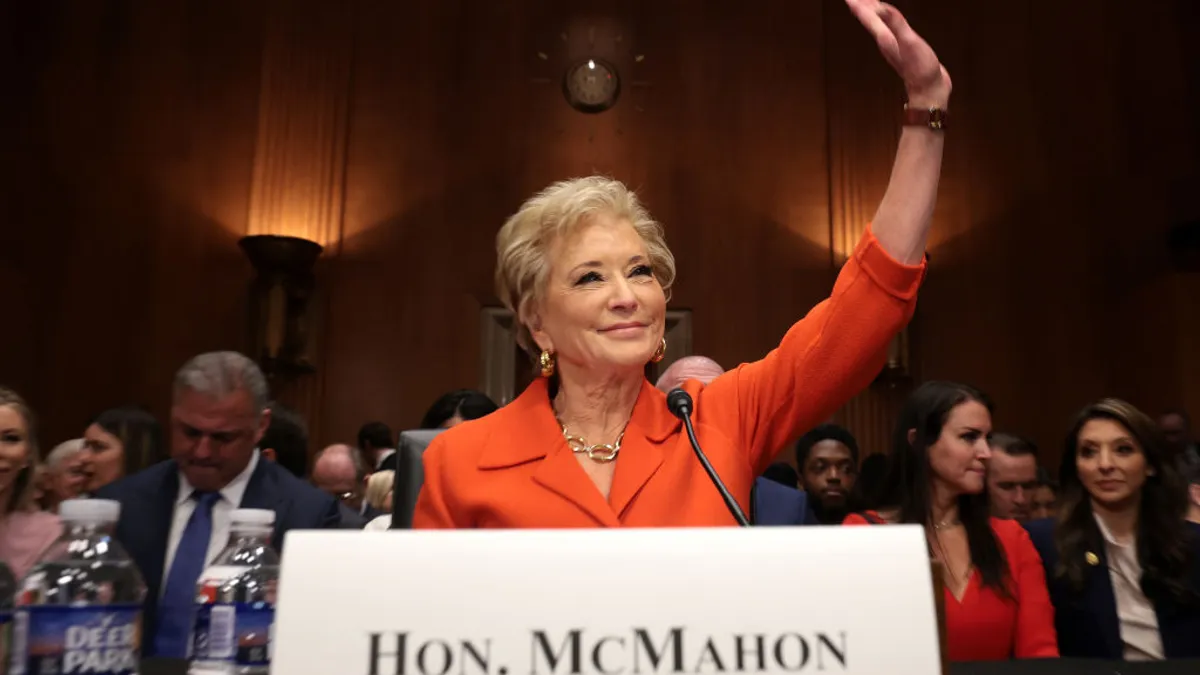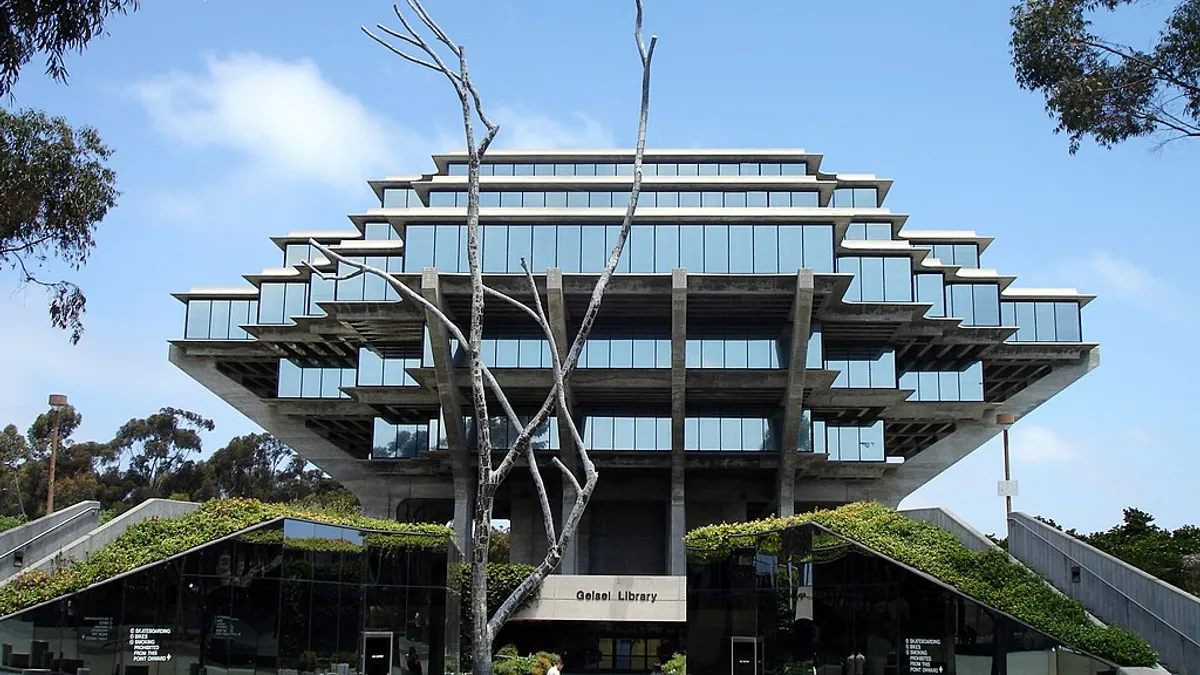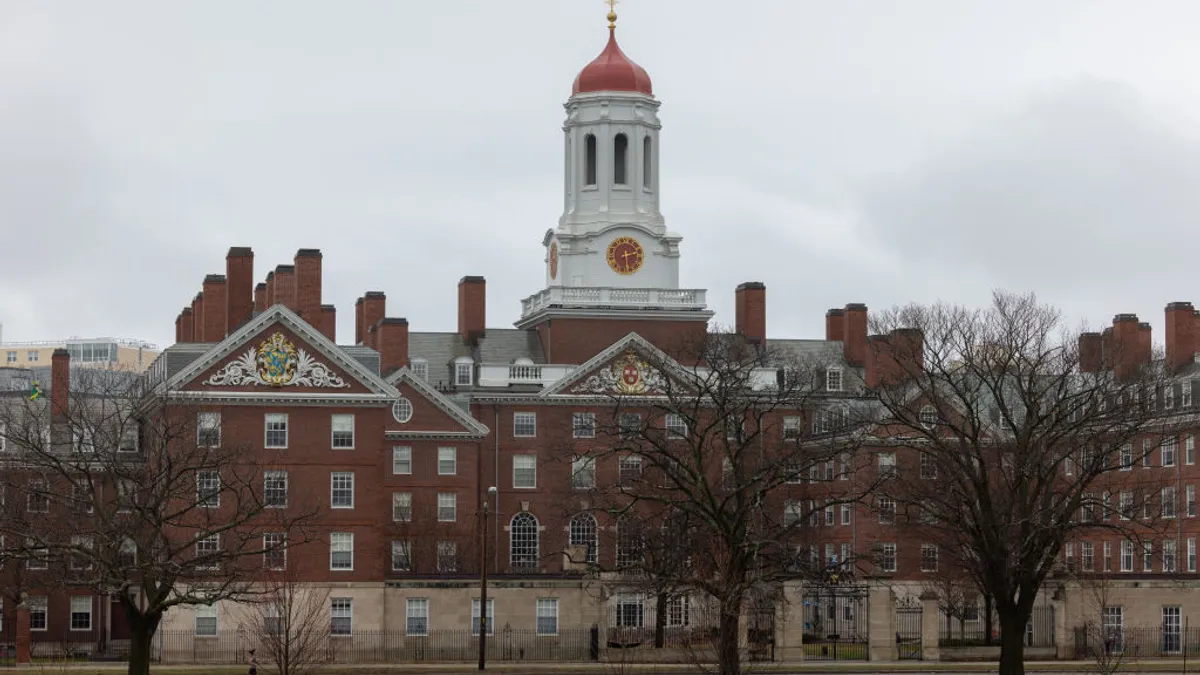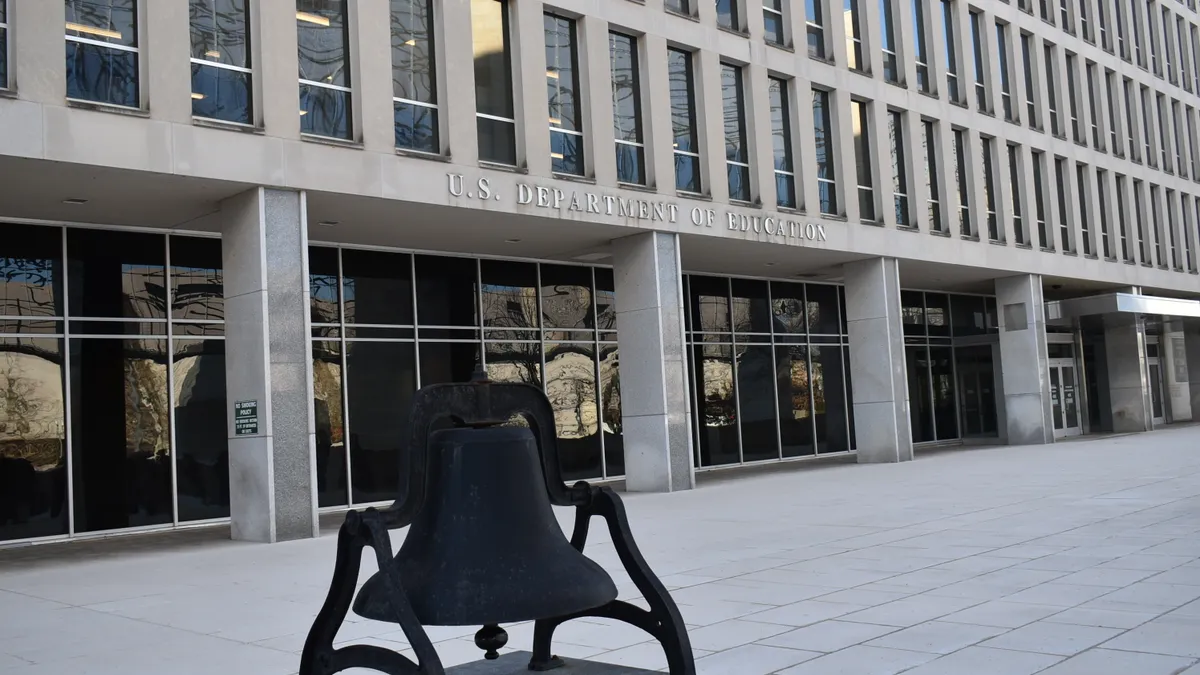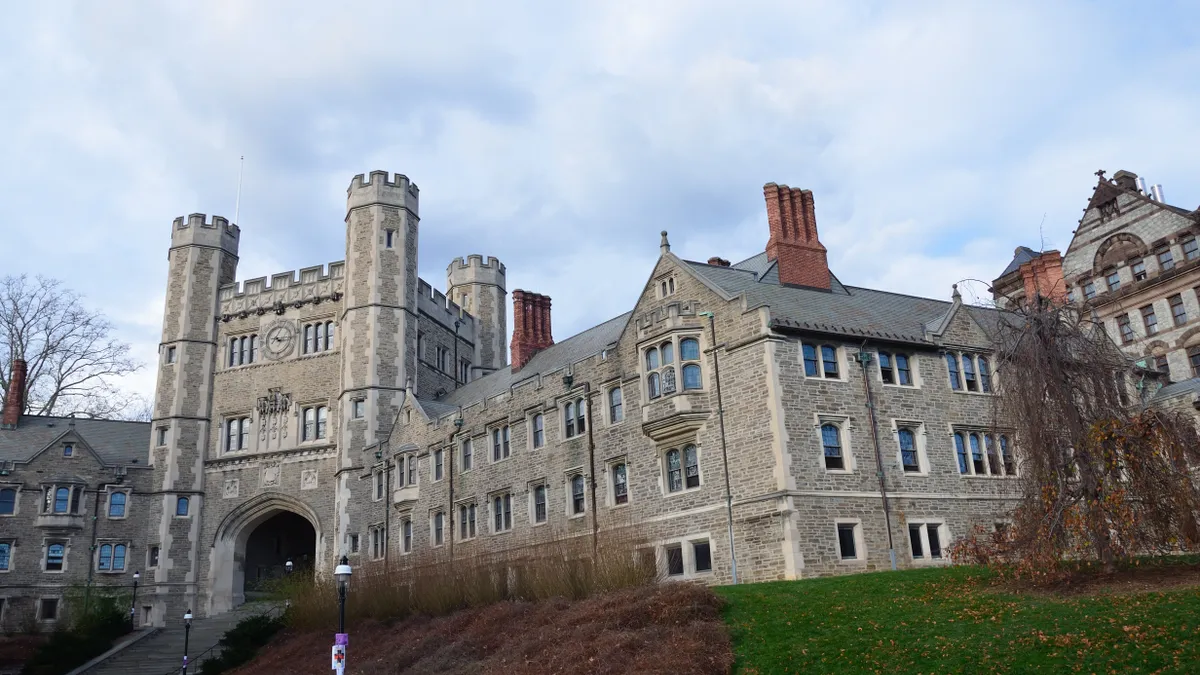A federal judge dismissed a lawsuit Thursday brought by Grand Canyon University, a Christian college in Arizona with a massive online education presence, that alleged the school didn't receive all the coronavirus relief funds to which it was entitled.
At issue was whether Grand Canyon University should be considered a nonprofit or a for-profit school. For-profit schools received a lower share of federal coronavirus relief funds and had more restrictions on how they could use the money.
In the lawsuit, Grand Canyon University said it should have received millions more in funding because the IRS lists the college as a nonprofit. However, the U.S. Department of Education considers Grand Canyon University a for-profit university for the purposes of distributing federal student aid after refusing in 2019 to grant it nonprofit status.
U.S. District Judge Douglas Rayes was unswayed by the university's argument. Rayes wrote that Grand Canyon University was indisputably a for-profit college as defined by the Higher Education Act. Because a college's status under that law — and not its status with the IRS — determined its eligibility for coronavirus relief funds, Grand Canyon's argument failed, he ruled.
Grand Canyon University plans to appeal the decision.
"GCU brought this case on behalf of its students to ensure they are treated fairly regarding the Higher Education Emergency Relief Fund (HEERF) grants made to institutions under the Coronavirus Response and Relief Supplemental Appropriations Act and the American Rescue Plan Act," the university said in a statement emailed to Higher Ed Dive. "The Department of Education's classification is unfair in this case, not to Grand Canyon University, but to our students since they are to receive 100% of these funds."
One of two battles over nonprofit status
Grand Canyon University split from its former parent company in mid-2018, seeking to become a nonprofit college as part of the separation. But it retained that company, Grand Canyon Education, as a services provider to which it pays a share of its tuition revenue.
While the IRS approved Grand Canyon University's request to become a nonprofit, the Ed Department did not, arguing the university did not meet its standards for becoming a not-for-profit institution.
That conflicting status has spawned two lawsuits against the Ed Department, including the one dismissed this week.
In the other lawsuit, filed earlier this year, the university is contesting the agency's decision to not grant it nonprofit status for the purposes of distributing federal student aid.
Federal lawmakers gave colleges three rounds of coronavirus relief totaling roughly $77 billion to defray pandemic-related expenses, much of which had to go to emergency student aid.
The first package didn't distinguish between funding levels for nonprofit and for-profit colleges, but the next two gave less weight to the proprietary schools. They also required for-profits to pass all relief funding on to students in the form of emergency grants.
Grand Canyon University, which enrolls more than 100,000 students, received around $22 million in the first round. But it received less in the next two rounds — around $18 million and $11 million, respectively — because of its classification as a for-profit institution.
In its lawsuit, Grand Canyon University drew comparisons to Liberty University, a private nonprofit evangelical university in Virginia that enrolls some 90,000 students. Liberty received about $38 million in the second round of funding, compared to Grand Canyon's $18 million.
The university argued it was being deprived "of millions of dollars in emergency funding when they are needed most."
Robert Shireman, a senior fellow at progressive think tank The Century Foundation who has tracked nonprofit conversions in higher ed, said it was clear the judge was unconvinced the department has to consider a school to be a nonprofit just because of its tax-exempt status with the IRS.
"Those are separate determinations by different agencies, and, in fact, they're different things," Shireman said.
The decision wasn't particularly surprising, said Brian Galle, a law professor at Georgetown University. The ruling pointed out that the statute determined funding levels based on whether schools were considered nonprofits under the Higher Education Act.
"We are pleased with the judge's dismissal of the university's challenge and will continue awarding HEERF funds in accordance with the law, as written by Congress," an Ed Department spokesperson said in a statement.
But Grand Canyon University took issue with the judge's reasoning. Rayes wrote "the parties agree that GCU does not qualify as a nonprofit institution" under the Higher Education Act.
The university contested this statement, saying it has always maintained it is a nonprofit for all purposes under the Higher Education Act. In the university's statement, it cited its separate lawsuit against the Ed Department arguing that the agency should consider it a nonprofit.
"The Court had no basis to say that GCU agreed that it was not," the university said in the statement.
Scrutiny over nonprofit conversions
Grand Canyon University is one of several for-profit colleges that have recently sought nonprofit status. Yet some higher ed experts say these schools are nonprofits in name only — an issue that recently caught the attention of Democratic lawmakers.
A report earlier this year from the U.S. Government Accountability Office studied 59 nonprofit conversions from January 2011 to August 2020. It highlighted concerns about conflicts of interest in a third of those transactions.
Similar concerns were raised in Grand Canyon University's case.
In the Ed Department's explanation of its decision to keep Grand Canyon University a for-profit, the agency said it took issue with the institution's services contract with Grand Canyon Education, saying the agreement was meant to drive shareholder value for the former parent company — with the college as its "captive client."
The Ed Department also flagged that Brian Mueller is both the head of the university and the former parent company, creating "obviously conflicting loyalties."
In Thursday's ruling, Rayes didn't examine the Ed Department's decision to not grant Grand Canyon University nonprofit status. That decision is being examined by another judge. But if the university wins its other lawsuit against the Ed Department — which would force the agency to grant it nonprofit status — it could change the result in the dismissed case, Galle said.








